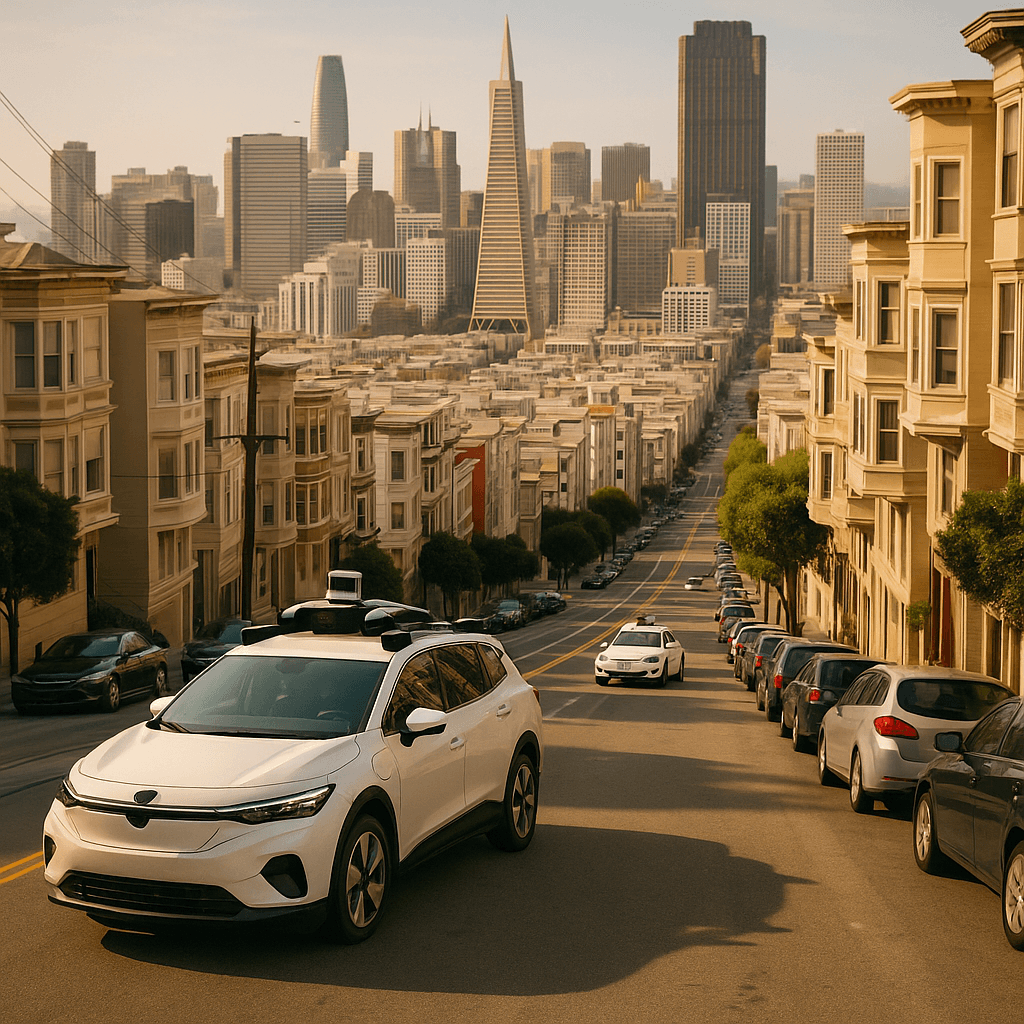San Francisco Mayor Daniel Lurie is betting big on becoming America's autonomous vehicle testing ground. Speaking at TechCrunch Disrupt, Lurie declared the city should be "the testbed for emerging technology" as Waymo robotaxis cruise the streets and Uber prepares its own driverless launch. While cities like Boston consider AV bans, San Francisco is doubling down on tech-first policies that could reshape urban transportation nationwide.
San Francisco's new mayor just threw down the gauntlet in the autonomous vehicle wars. Daniel Lurie's declaration at TechCrunch Disrupt that his city should be "the testbed for emerging technology and AI" isn't just political posturing - it's economic strategy with real consequences for how America adopts driverless cars.
Waymo and Zoox robotaxis already navigate SF streets daily, and Uber is prepping its own autonomous service through partnerships with Lucid and Nuro. Lurie sees this as exactly what his city needs. "We always have been, and under my leadership, we will continue to lead and lean in," he told the Disrupt audience Wednesday.
The timing couldn't be more critical. While Google's Waymo unit has logged thousands of safe rides in the Bay Area, other major cities are pumping the brakes hard. Boston officials have floated outright bans on autonomous vehicles, creating a stark regulatory divide that could determine which tech companies dominate the next decade of transportation.
"Waymo has proven out it is a safe ride," Lurie said, highlighting how the robotaxis have become tourist attractions themselves. Visitors literally come to San Francisco just to experience driverless rides - a detail that reveals how the technology has shifted from novelty to economic asset. The mayor expects Waymo to expand to San Francisco International Airport soon, potentially creating a direct pipeline from arrival gate to downtown hotel.
But this isn't just about individual rides. The regulatory framework matters enormously for the companies investing billions in autonomous technology. California's Department of Motor Vehicles handles testing permits, while the Public Utilities Commission controls commercial robotaxi operations. This two-tier system has created a relatively smooth path for companies that can navigate both agencies.
The economic stakes are massive. Lurie explicitly connected his tech-friendly stance to "the money and jobs it can bring to the city." San Francisco's willingness to serve as a real-world laboratory gives companies like Waymo invaluable data that can't be replicated in closed testing facilities. Every mile driven in actual traffic conditions helps refine the AI systems that will eventually power autonomous fleets nationwide.












